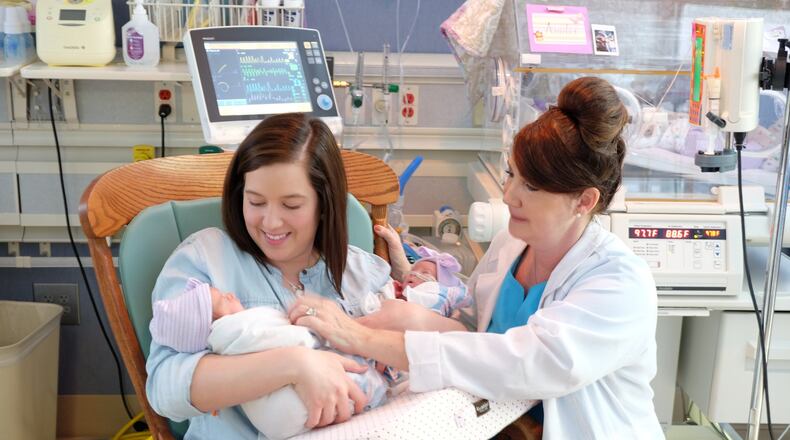Georgians teaching new mothers how best to breastfeed their children got a reprieve from a new licensing law when the Secretary of State’s Office agreed not to enforce the requirement while a lawsuit challenging it is ongoing.
In a Thursday filing with the Fulton County Superior Court, Secretary of State Brian Kemp agreed not to enforce the law requiring a higher standard of training for lactation consultants until the case is decided. Kemp’s office oversees state licensing boards.
In return, the plaintiffs — members of Reaching Our Sisters Everywhere, an Atlanta-based nonprofit that works to promote breastfeeding in communities of color — filed documents removing members of the Lactation Consultant Advisory Group from the complaint.
Mary Jackson, a certified lactation counselor who works at Grady Health System, and other members of ROSE filed the lawsuit Monday against Kemp and the advisory group, saying the law is unconstitutional.
Jackson said she was happy Kemp agreed to allow the counselors to continue practicing.
“There is a lot of work ahead of us, but we are thankful that we can go to work on Monday knowing we’re standing up for what is right,” she said.
Lawmakers in 2016 approved a law that requires lactation consultants to be licensed by the Georgia Secretary of State's Office. To receive the license, a consultant must hold a certification from the International Board of Lactation Consultant Examiners.
Jackson said there are more than 800 lactation counselors in Georgia. There are 95 consultants licensed by the state.
Since 2016, consultants could apply for state licensing.
To gain certification, consultants must take 14 college courses in health science, complete 90 hours of breastfeeding education, work 1,000 clinical hours providing lactation services and pass a written exam.
About the Author



